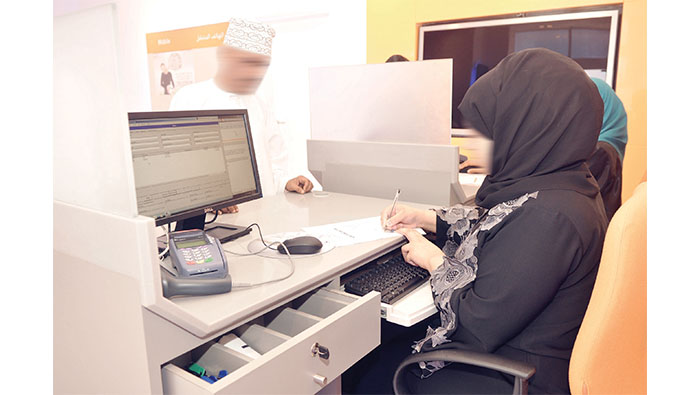
Muscat: The Government employees in the Sultanate of Oman have welcomed the decision of flexible working hours and option of remote work during the Holy Month of Ramadan. Ahead of the start of Ramadan, the Ministry of Labour had issued a notification where government employees had three other options of working besides the normal Ramadan working hours from 9am to 2pm.
The other timings offered were from 7am-12pm, 8am-1pm and 10am-3pm besides a provision for department heads to allow remote work but with at least 60 percent in attendance.
With nearly 14 hours of fasting, employees do face situations where lack of energy and sleep can affect productivity.
Though only one working day has passed since Ramadan began on Thursday, the changed flexible working hours have made it easier for government employees to practice fasting and cope with work.
Saada Al Ismaili, vice-president of Oman women’s sports and gender equality committee, said: “It is a welcome decision. I have personally yet to experience it as I am on leave, but the flexible working hours will give a proper life-balance between work and home.
“Remote work helps to avoid time lost in commuting to the office and flexible working hours certainly enhance productivity. Reduction in commuting hours to work is a big advantage.”
Noor Al Balushi, another employee in the government sector, expressed happiness at flexible working during Ramadan. Al Balushi said: “I actually like to work in Ramadan because it regulates my day since I must sleep early to wake early to go to work. But, with options of picking up time slots, I found that there was less traffic on Thursday and even the work was streamlined as we had colleagues coming at different times. Lack of energy, sleep and food can affect work but with the flexible work hours, it is easier to practice fasting and cope with work.”
Ibrahim Al Abri said: “Flexible working hours are not new to us as we had it during the pandemic. I think it’s a smart system and I prefer to have it not only during Ramadan but even during the year. For example if, God forbid, something happened and you were late for work, you can compensate for it on the same day with no problem and this system will make it easier for people not to rush every morning to go to work.”
A senior official, who wished to speak on condition of anonymity, said: “One could stick to one routine in Ramadan as it was easier to cope with it when you had a routine. During the blessed month of Ramadan, I have a routine that makes working hours easier. I have suhoor, sleep until 6 am then wake up to go to work around 10am. I stay at work until 3pm. I go home, sleep for some time, then I wake up to break my fast and have iftar.”
He added: 'The flexible working hours also mean that there can be a better coordination between government and private sector and this would mean better business dealings and more productivity.”
Another employee, Khoula Al Suleimani, said that “the new system of flexible working hours assist to reduce traffic, especially during afternoon peak traffic hours, and will help people to be more productive in the workplace.”
“On the first day, there was a noticeable difference in the afternoon on the roads. Less traffic during peak afternoon hours was visible and this will also help in eliminating road accidents,” said Badr Al Maamari, who was travelling to Saham to spend the weekend with his family.
The flexible working hours had one common reply from the employees: traffic woes will be reduced. “There will be less traffic and during Ramadan, when one is hungry and thirsty, to spend time on the roads can be frustrating,” said Said al Ruqaishi, a ministry employee.
Badr Al Zadjali said that these are “early days of the holy month of Ramadan.” “With fasting, one gets tired easily. The flexible work hours makes it easier for us to rest more and go late to office. It is certainly beneficial and provides an opportunity to strike a right work-life balance and help office managers to be more creative and productive, ultimately helping the productivity at work place,” he noted.
While government employees have the option of flexible working hours, few Muslims, working in private sector, said that the option should have covered all people who were observing fasting.